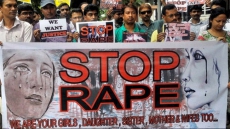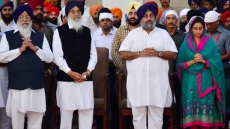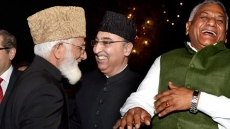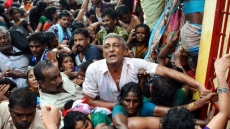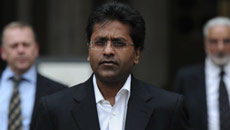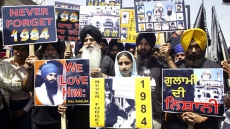Conventional wisdom has it that lowly-ranked sepoy Mangal Pandey became the catalyst for India's first uprising against Western rule in 1857 after he revolted against the alleged use of cattle and pig lard smeared on bullet cartridges used in Enfield rifles issued by the East India Company.
But here's what you perhaps do not know.
A sustained campaign is on to haul back the date of India's first rebellion against Western colonialism by a good 274 years - from Barrackpore in eastern India to what is now Goa.
The campaign, which is endorsed by historians, freedom fighters, elected representatives and local residents, wants the central government to officially endorse as the first real rebellion the prolonged, defiant struggle of five south Goa villages - Cuncolim, Ambelim, Assolna, Veroda and Velim - against the Portuguese colonists which saw bloodshed and non-payment of taxes.
"The residents of the five villages, led by Cuncolim, had, beginning from 1583, defied Portuguese taxes after Christian missionaries destroyed five temples in the area to bring the villagers into submission and also killed over a dozen of our chieftains," Oscar Martins, who traces his lineage to one of the slain chieftains, told IANS.
Many of the claims made by Martins find echo in church records and historical accounts of the time.
The struggle, in which several lives were lost, dates back to 16th century when early Christian missionaries along with their Portuguese armed escorts tried to convert the residents of these five villages to Christianity. When the attempts largely failed, the missionaries destroyed nearby temples, which enraged the villagers, resulting in the massacre of some priests including Fr. Rudolfo Acquaviva - an Italian Jesuit who had also held position at Emperor Akbar's court and has since been beatified - and their colleagues on July 15, 1583.
In retaliation, the colonists proposed a parley, which ended in yet another bloodbath.
"Sixteen chieftains from Cuncolim were called for a truce to (nearby) Assolna fort. They were ambushed and shot to death by the Portuguese soldiers as retaliation. One of the chieftains managed to escape and tell the story," said Martins, who now heads the Cuncolim Chieftain Memorial Trust.
After the bloody feud, the five villages stopped paying taxes to the Portuguese rulers for eight years from 1583 - centuries before Mahatma Gandhi started his "no tax" campaign against British colonists.
Congress Rajya Sabha MP Shantaram Naik, who has been a part of the campaign to put the Cuncolim revolt as the first landmark on the map of India's nationalist history, said he was confident eventually the central government would formally acknowledge the event as India's first recorded revolt against a European power.
"For that, the state government will first have to include this incident in our history books to convey Goa's formal recognition of the event. We also need to give the central government rigorously researched material to back our claim. We are confident that the Cuncolim revolt will get its place in history that it richly deserves," Naik told IANS.
The Bharatiya Janata Party-led ruling coalition had promised three years ago to appoint a committee to study the matter for the Cuncolim revolt to be included in school books, but Martins claimed it would need persistent lobbying and reminding because history "cannot be hidden for a long time even if the government neglects it".
The Trust has engaged a documentary maker to produce a historical film on the subject.
"We did not want to wait for the government to take a decision. We do not want to lose time in giving the Cuncolim revolt its rightful place in history," Martins said.
